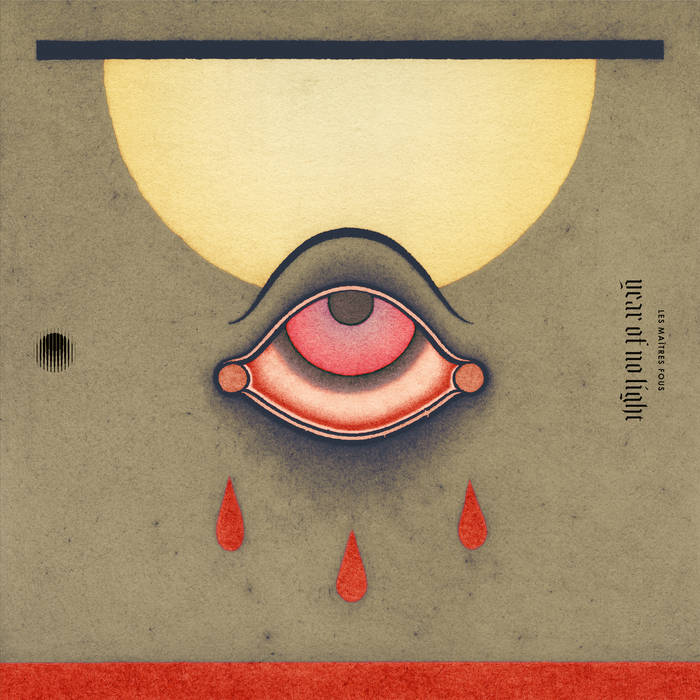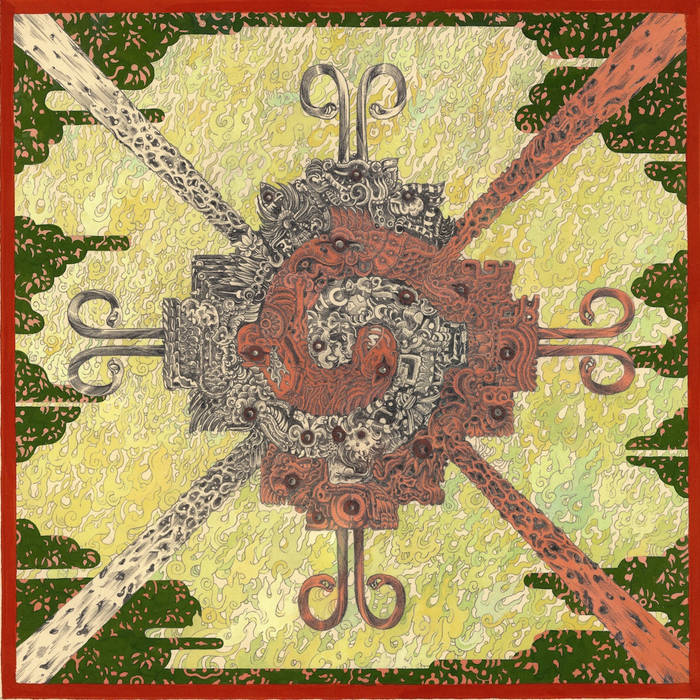Zack de la Rocha, Chino Moreno and now Ashanti Mutinta. Three very different people, three distinctly diverse agendas but one commonality: They use the word “Fuck” in the most poisonous, best possible, most poignant way! Her new record Only Dust Remains is a sure step in a new direction.
Ashanti Mutinta aka Backxwash just released a pretty introspect record that is at the same time always connected to the outside world as well. The relationship between inner self and outer sphere is at the center of these 40 minutes strewn across ten songs and that is surely a development unto itself as one of the main topics of her body of work up to here has always been the search for the inner self, the very core of her identity. Now this core is – seemingly – defined and this record thus explores its relation to the outer world, to them, to both – the closer vicinity of friends and family as well as the further realms. However, one should not see this as a purely malicious settlement opposing the constraints of a society who has problems with persons like Ashanti – it’s also still about her struggles that she somehow has imposed upon her herself.
The record talks about Ashanti sees herself, sees the others and how she perceives the others to perceive her. A difficult relationship, but when she talks about having lost people or how people and the expectations of society one can recognize the tumultuous character of the passage she has initiated and is still pursuing. The whole, huge bag of intricacies, intimacies and irritations is still like a huge box of threads waiting to be singled out, solved, and set aside.
Musically, we get mighty interesting HipHop, sometimes classic, sometimes rather unusual, but always emotionally moving and often both things can be found in the same track. For example in the seven minute epic called ”Wake Up”. Opening with a vocal sample that is quite the opposite of Houston’s infamous ‘Chopped and Screwed’ style because the pace is sped up, before the whole things takes many more shifts and turns: some spherical synths interspersed with other sample layers (including the opening one) are slowly building and building. Of course, Ashanti’s bars straight from the bar infuse the whole track with spite and anger – towards many people including herself. And when then the infamous line “Wake the f*** up” comes up – it’s as if de la Rocha finally had found something to rap about again, years after having gone (musically) silent. And in some ways one must say, that the inner self is as important and as political as the (real) political environment and thus this is not a step back but one forward. When the solo guitar hits with a kind of late 70s classic style, then the song takes another spin and then after roughly two-thirds of its seven minutes it transforms into a soulful Gospel with a choir seemingly consisting of many young female voices. It’s like going from a troubled interior conflict into the wide open outside as if to take a breath. And it surely is just that for the listener – first we thrown around, being punched at before we are hugged.
But this dichotomy, this paradox, this contradiction – that’s exactly what this record is all about: striving for some inner clarity although it is clear that this process and journey will need much more time than this momentary glimpse can provide. And even when or if we get a clearer, bigger picture – it will remain unclear whether it will be a satisfying one or not. Will we ever arrive at a final solution? Understanding? Maybe, maybe not. But in some ways, the discussion, the exchanging of thoughts – that’s the most important step. And sometimes this exchange needs to wake you up with a strong “F***!”











